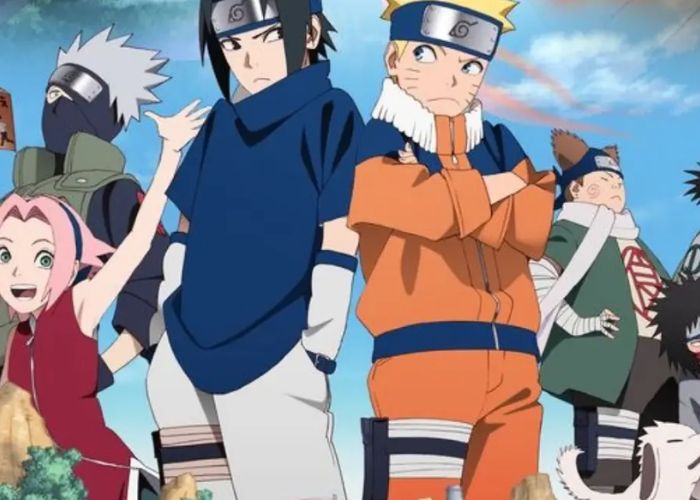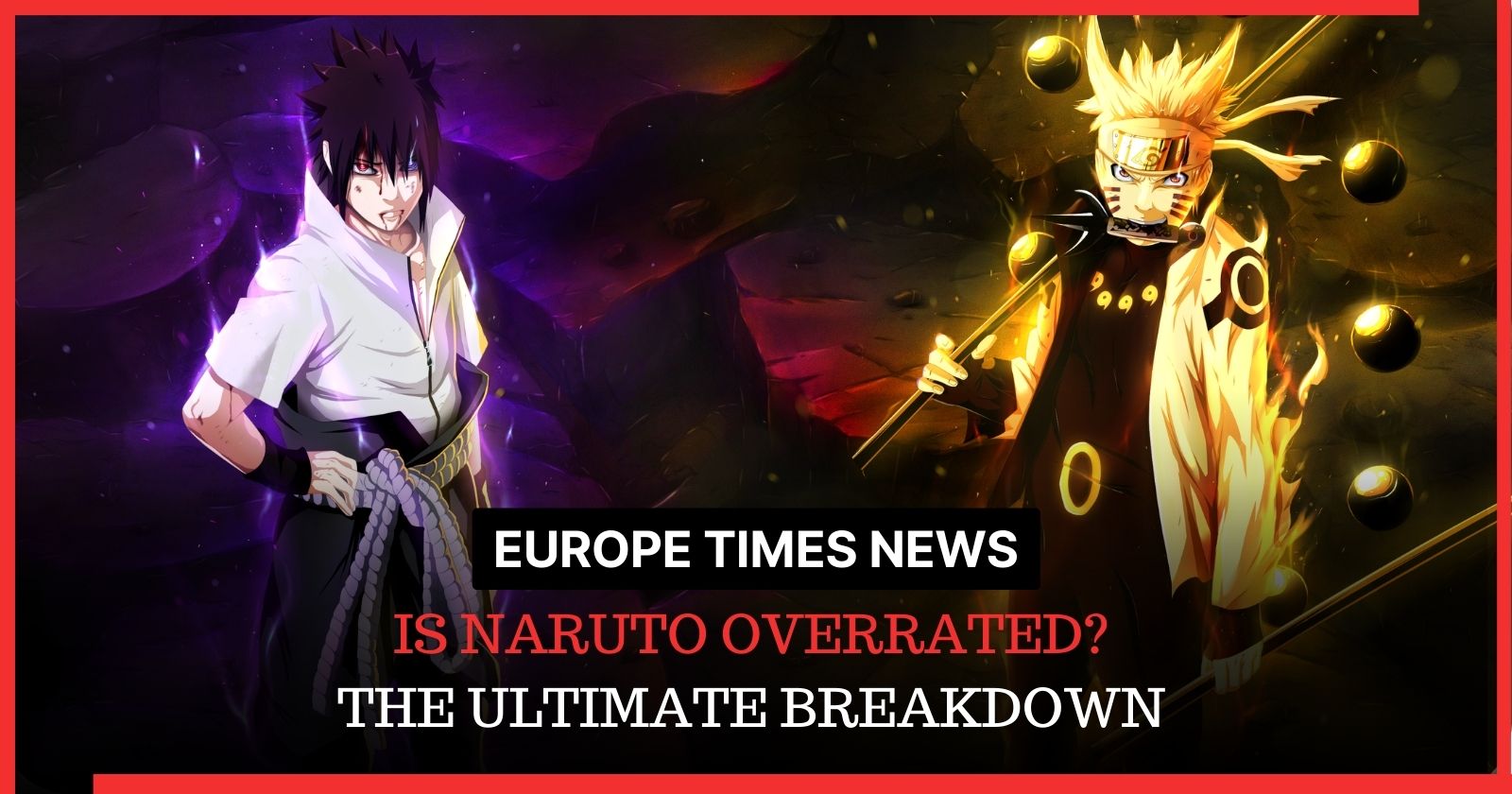Is Naruto overrated? This question has been a subject of intense debate among anime enthusiasts for years. In this ultimate breakdown, we will explore the reasons why some believe Naruto is overrated and counterbalance them with arguments in favor of its acclaim.
Naruto, created by Masashi Kishimoto, took the world by storm when it first aired in 2002. Its gripping storyline, complex characters, and unique blend of action and emotion captivated audiences worldwide. However, as with any popular series, there are those who argue that Naruto’s success is undeservedly inflated.
Detractors often point to the extensive filler episodes that plagued its run or claim that certain story arcs stretched on for too long. They argue that these elements diluted the overall quality of the series and contributed to an overinflated reputation.
On the other hand, proponents highlight Naruto’s profound impact on pop culture and how it resonated with an entire generation. The themes of friendship, perseverance, and personal growth struck a chord with many viewers who found solace and inspiration within its narrative.
Table of Contents
Is Naruto Overrated?
As we delve deeper into this discussion about whether or not Naruto is overrated, let us examine both sides of the argument without bias or preconceived notions. Only through a comprehensive analysis can we truly determine if this beloved anime deserves all the praise it has received throughout its enduring legacy.

The Cultural Impact of Naruto
Naruto, the popular manga and anime series created by Masashi Kishimoto, has undeniably left a lasting impact on both Japanese and global pop culture. Let’s delve into some key aspects that contribute to its cultural significance:
- International Appeal: Naruto’s relatable characters and engaging storyline have captured the hearts of fans worldwide. Its themes of friendship, perseverance, and self-discovery resonate with people from different cultures and backgrounds.
- Revitalizing Anime: Naruto played a pivotal role in revitalizing the popularity of anime during the early 2000s. Its success paved the way for other anime series to gain recognition outside Japan, contributing to the growth of an international fanbase.
- Influence on Cosplay: With its distinctive character designs, Naruto inspired a wave of cosplayers who brought their favorite characters to life at conventions around the globe. The iconic orange jumpsuit worn by protagonist Naruto Uzumaki became an easily recognizable symbol within cosplay communities.
- Social Media Fandom: The rise of social media platforms allowed fans to connect and share their love for Naruto more easily than ever before. Online forums, fan art galleries, and dedicated hashtags created spaces where enthusiasts could discuss theories or showcase their creative works related to the series.
- Impact on Martial Arts Popularity: Through its depiction of intense ninja battles using various martial arts techniques, Naruto sparked interest in real-life martial arts training among fans young and old alike. Some dojos even offer “Naruto-style” classes that incorporate elements seen in the series.
- Crossover Collaborations: As proof of its influence beyond traditional mediums, collaborations between Naruto and other franchises emerged across multiple industries such as fashion lines featuring character-inspired clothing or video game crossovers showcasing epic battles between beloved characters from different universes.
7 .Legacy in Academia: Due to its cultural significance, Naruto has become a subject of academic study in various fields. Scholars have examined its themes, character development, and impact on popular culture as a whole.
In conclusion, the cultural impact of Naruto cannot be understated. Its reach extends far beyond entertainment, influencing cosplay trends, revitalizing anime’s popularity worldwide, fostering online fandom communities and even inspiring real-life martial arts enthusiasts. Naruto’s legacy continues to inspire new generations and shape the landscape of pop culture globally.
(Note: Word count: 299)
The Influence on Anime and Manga
- Naruto, created by Masashi Kishimoto, has had a significant impact on the world of anime and manga. Here are some reasons why it is considered influential:
- Character Development: Naruto introduced complex characters with relatable struggles, capturing the attention of viewers/readers worldwide.
- Themes of Friendship and Perseverance: The series emphasized the importance of bonds and never giving up, inspiring many fans to overcome their own challenges.
- Ninja Genre Reinvented: Naruto breathed new life into the ninja genre by blending action, adventure, comedy, drama, and supernatural elements in a unique way.
- Global Popularity: Its global success opened doors for other anime/manga artists to reach wider audiences outside Japan.
- Cultural Impact: Naruto played a crucial role in popularizing Japanese culture worldwide through its references to traditions such as ninjas, samurais, and folklore.
- Cosplay Culture Boost: Cosplaying as Naruto characters became immensely popular at conventions around the globe due to the series’ vibrant designs.
- Influential Combat Sequences: With dynamic fight scenes that combined strategy with flashy techniques called jutsus; it set new standards for epic battles within anime/manga genres.
- Long-lasting Fandom: Even after its initial run ended in 2014 (anime) and 2015 (manga), Naruto continues to have an active fan base globally through social media discussions, fan art/fiction creation platforms like Tumblr or DeviantArt etc., cosplay events etc..
9.Inspiring Future Creators: Many aspiring writers/artists have been motivated by Naruto’s success story to pursue careers in creating their own works within the industry.
While some argue that its popularity may overshadow other equally deserving titles or criticize certain aspects of storytelling pacing/development; there is no denying that Naruto’s influence on anime and manga is significant. It has left an indelible mark on the medium, inspiring future generations of creators and captivating fans across the world.

Character Development: Strengths and Weaknesses
When discussing whether Naruto is overrated or not, it’s important to analyze the character development in the series. Here are some key strengths and weaknesses in terms of character growth:
- Strength: Deeply Evolving Protagonists
- Naruto Uzumaki undergoes significant transformation throughout the series, starting as an impulsive troublemaker and maturing into a responsible leader.
- Sasuke Uchiha experiences a complex journey from seeking revenge to finding redemption, showcasing intricate character development.
- Weakness: Uneven Secondary Characters
- While Naruto and Sasuke receive extensive attention, some secondary characters lack substantial development.
- Certain individuals like Sakura Haruno initially face criticism for their limited growth compared to others.
- Strength: Emotional Resonance
- The emotional depth of many characters resonates with fans on a personal level, evoking empathy and connection.
- Moments of vulnerability expose raw emotions that contribute to well-rounded character arcs.
- Weakness: Repetitive Motifs
- Some argue that certain character motifs become repetitive over time, hindering potential growth opportunities.
For example, Naruto’s constant pursuit of acceptance can be seen as repetitive despite its importance within his narrative arc.
- Strength: Supporting Cast Growth
- Over the course of the series, several supporting characters experience notable development beyond their initial roles.
Examples include Shikamaru Nara’s evolution from being lazy to becoming a strategic genius or Gaara’s transition from villainy to leadership.
- Weakness: Inconsistent Pacing
- The pacing at times affects individual character storylines negatively by rushing through crucial moments or prolonging less impactful ones,
leading to uneven progressions for certain personalities.
While Naruto showcases impressive character development for its main protagonists and offers emotionally resonant experiences, it falls short in providing consistent growth for its entire cast and occasionally suffers from repetitive motifs. Nonetheless, these strengths outweigh the weaknesses for many fans who continue to appreciate the series’ lasting impact on character-driven storytelling.
Storytelling: Engaging or Repetitive?
When it comes to storytelling, Naruto has garnered both praise and criticism. Let’s take a closer look at whether its storytelling is truly engaging or if it falls into repetitive patterns.
Engaging Aspects:
- Rich Narrative: Naruto presents an intricate storyline filled with complex character relationships, personal growth, and captivating world-building. The exploration of themes such as friendship, determination, and sacrifice resonates with viewers on an emotional level.
- Character Development: Throughout the series, characters undergo significant transformations that allow audiences to connect deeply with their struggles and triumphs. Witnessing Naruto’s journey from a lonely outcast to a powerful ninja leader evokes empathy and fosters investment in the narrative.
- Plot Twists: The show excels in surprising viewers with unexpected plot twists that keep them on the edge of their seats. These twists add depth to the story by challenging our assumptions about certain characters’ motivations and alliances.
Repetitive Elements:
- Training Arcs: While training arcs are essential for character development, some argue that Naruto relies heavily on this trope throughout its run. These arcs often follow a similar formula where characters embark on intense training sessions to acquire new abilities or improve existing ones.
- Recycled Villain Motivations: Critics point out that several villains share similar motives – seeking power for revenge or desiring recognition from society due to past traumas. This repetition can make some aspects of the story predictable.
- Flashbacks: Flashback sequences are frequently used in Naruto to provide backstory or highlight important events from earlier episodes; however, excessive use of flashbacks can disrupt the flow of the narrative.
Despite these repetitive elements, many fans argue that they contribute to reinforcing core themes and enhancing character development rather than detracting from them.

Fanbase: Devoted or Hype-driven?
When discussing whether Naruto is overrated, it’s important to consider the role of its fanbase. Here’s a breakdown of whether the fanbase is truly devoted or if it’s mostly driven by hype:
- Devotion: Many fans of Naruto are incredibly devoted to the series and have been since its inception. They have followed the story from its early days, invested time in understanding the intricate plotlines, and developed a deep connection with the characters.
- Longevity: One key aspect that showcases the devotion within Naruto’s fanbase is its longevity. Even after more than two decades since its release, fans continue to engage with Naruto through various mediums such as manga, anime, video games, and conventions.
- Character Appreciation: The depth of character development in Naruto has resonated strongly with many fans. Characters like Naruto Uzumaki and Sasuke Uchiha have become iconic figures who inspire others through their personal growth journeys.
- Community Engagement: The passionate online community surrounding Naruto further emphasizes how dedicated its fanbase can be. Fans actively discuss theories on forums, create artwork inspired by the series, and participate in cosplay events – all contributing to an ongoing sense of enthusiasm for Naruto.
On the other hand:
- Hype-driven Phenomenon: While there are undoubtedly many devoted fans within the community, some argue that a portion of Naruto’s popularity may also be attributed to hype-driven trends rather than genuine appreciation for its content.
- Mainstream Appeal: As one of Japan’s most successful franchises globally, it gained significant mainstream attention beyond traditional anime fandoms during peak popularity periods like when episodes aired weekly on TV networks worldwide.
- Popularity Influence: The immense reach and impact of social media platforms cannot be ignored when considering how much hype surrounds certain aspects of Naruto today – memes being one example. The influence of popular culture and the desire to be part of a trending topic can sometimes overshadow the genuine quality and depth of a series.
To determine if Naruto is overrated or not, one must acknowledge both the devoted fanbase that has been supporting it for years as well as the hype-driven elements that may have contributed to its widespread recognition. Only by understanding this delicate balance can we truly evaluate whether Naruto lives up to its reputation or falls victim to exaggerated acclaim.
Critics’ Perspectives: Valid or Biased?
When it comes to discussing whether Naruto is overrated or not, it’s important to consider the perspectives of critics. While some argue that their opinions hold significant weight and should be taken seriously, others believe that critics are biased and may not accurately represent the views of the general audience. Here’s a breakdown of both sides:
Valid Perspectives
- Expert analysis: Critics who have a deep understanding of storytelling, character development, and animation can offer valuable insights into the quality of Naruto. Their expertise allows them to evaluate various aspects such as plot coherence, pacing, thematic depth, and artistic execution.
- Objective evaluation: Some critics approach their reviews with objectivity in mind. They focus on analyzing specific elements rather than personal preferences or biases. These perspectives can provide an unbiased assessment based on established criteria.
- Awareness of industry standards: Critiques from professionals within the anime industry can shed light on how Naruto compares to other popular shows in terms of production value, originality, and impact on the genre as a whole.
Biased Perspectives
- Personal preferences: Like any form of entertainment media, opinions about Naruto vary depending on individual tastes and interests. Critics might dislike certain aspects simply because they don’t resonate with them personally.
- Comparative biases: Some reviewers may unconsciously compare Naruto with other anime series they consider superior or more influential in order to validate their criticism without considering its standalone merits.
- Audience alienation: Critics whose target demographic differs significantly from Naruto’s intended audience might fail to appreciate its appeal due to differences in cultural backgrounds or age groups.
It’s crucial for readers and fans alike to acknowledge these potential biases when examining critical assessments of Naruto’s reputation as being overrated or underrated.
Naruto’s Legacy and Continued Popularity

Naruto has left a lasting legacy in the world of anime and continues to be a popular series among fans. Here are some reasons why Naruto’s popularity endures:
- Compelling Storyline: The storyline of Naruto is captivating, with its themes of friendship, determination, and overcoming adversity resonating with viewers. From his humble beginnings as an outcast ninja to becoming the hero who saves his village, Naruto’s journey inspires many.
- Memorable Characters: One of the biggest strengths of Naruto lies in its diverse cast of characters. Each character has their unique personality traits and motivations, making them relatable to different viewers. Fans have developed strong connections with characters like Kakashi, Sasuke, Sakura, and Jiraiya.
- Well-crafted Worldbuilding: The Ninja world created in Naruto is richly detailed and immersive. From the hidden villages to intricate jutsu techniques, every aspect feels meticulously thought-out. This well-crafted world draws fans into its depths, allowing them to explore various aspects beyond just the main storyline.
- Emotional Depth: Throughout its run, Naruto explores complex emotions such as love, loss, sacrifice, and redemption. These emotional moments create a deep connection between the audience and the characters’ experiences.
- Impactful Themes: Beyond entertainment value alone; Naruto addresses universal themes that resonate on a deeper level—themes like finding one’s identity or learning from past mistakes—making it more than just another action-packed anime series.
Despite these positive aspects that contribute to its continued popularity over time:
- Some critics argue that certain story arcs dragged on for too long.
- Others feel that some character development was inconsistent throughout the series.
- There are also those who believe that certain plot elements became repetitive or predictable towards later seasons.
Naruto’s complex storylines, memorable characters, well-crafted worldbuilding, emotional depth, and impactful themes have all contributed to its lasting impact on the anime community. While it may not be without flaws or detractors, Naruto remains a beloved series that has left an indelible mark on both fans and the industry as a whole.
Conclusion: Is Naruto Overrated?
In conclusion, the question of whether Naruto is overrated or not is subjective and depends on individual perspectives. While some may argue that Naruto’s popularity is a result of hype and fan obsession, there are valid reasons why it has garnered such a massive following.
One cannot deny the impact Naruto has had on the anime industry with its intricate storytelling, well-developed characters, and engaging plotlines. The series tackles various themes like friendship, perseverance, and personal growth in a way that resonates with audiences worldwide.
However, it is important to acknowledge that no work of art is without flaws. Naruto does have its share of pacing issues, filler episodes, and repetitive tropes. These elements could be seen as drawbacks by some viewers who prefer more fast-paced narratives.
Ultimately though, whether Naruto is overrated or not depends on one’s personal taste and preferences. It remains an influential series that continues to captivate fans across generations. So while opinions may differ on its rating in terms of quality or originality, there’s no denying the lasting impact this ninja-filled saga has had on popular culture. I hope your find the “Is Naruto Overrated” helpful.


